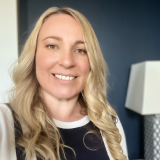Christmas wish granted for Pasifika leaders
Christmas has come early for 17 leaders of Pacific descent who have been selected for the Tautua Mentoring Programme 2025.

From reading board papers to deciphering company strategies, analysing quarterly financials to . . . changing nappies. There’s a 360-degree shift that takes place for many women in the juggle to balance career and family life, one that also comes with external pressures and adjusting to societal norms and expectations.
For women directors in New Zealand, there is no legal entitlement to leave, which complicates the implementation of maternity leave policies. Where boards might have a policy in place, directors remain liable for their duties while on leave, which puts increasing pressure on women directors to make a decision that could alter their future opportunities.
Given the limitation and lack of formal support mechanisms, one option is for the director to resign and be reinstated after maternity leave, but this creates other complications.
So, where does that leave women who are at the peak of their careers? And are some forfeiting opportunities for advancement in lieu of spending time with family?

Toni Moyes
For Sharesies’ Chief Commercial and Financial Officer Toni Moyes, there was an unanticipated identity shift that took place after the birth of her first child three years ago.
She had happily worked longer hours and accepted every opportunity that came her way; to suddenly experiencing FOMO (fear of missing out) as she went through a period of participating in fewer business and social gatherings, and allowing some career opportunities to pass by.
“There’s no real way of preparing for that in advance . . . and it was something that required me to do some letting go. That was difficult, and came with tension and some grief,” says Moyes.
In 2020, as Covid-19 appeared in New Zealand, Moyes became a Future Director for the corporate board of Fisher & Paykel Healthcare Limited, and was also on the APEC Business Advisory Council – “work that I loved; it was wonderful,” she says.
But newly thrust into motherhood and feeling pulled in multiple directions, she made the decision to forego the APEC role.
Like Moyes, many women start to feel that inner turmoil percolating in that psychological battle between living up to self-expectations versus societal pressures, which become illuminated through work and career.
Three years on, Moyes is on maternity leave with her second child and, while she is fortunate to have the support of her board, she feels more generally, that boards could benefit by putting policies and structures in place for those wanting to have children. She says there is an opportunity to more proactively support women directors.
“Possibly because of the traditional demographics of boards, many might not have encountered members needing a period of maternity leave in the past,” she says, adding that it is only once boards are dealing with an individual going through this that questions are being raised to work through it.
“You can end up in an awkward situation, perhaps needing to advocate for yourself, as well as trying to be part of the broader solution, and facing uncertainty about where it will ultimately land.
“It’s asking questions like, ‘Do we pay parental leave? Can we have a conversation about expectations, liability, and enabling participation for directors who are having babies?’ ”
Moyes believes boards can benefit from proactively thinking about how they can accommodate mothers, rather than women feeling pressure to take a step back or be put in the uncomfortable position of asking about expectations, upon discovering that no structures have been put in place or thinking had on the matter by the board.
“We’re all part of the same team and people need that support in their career,” says Moyes. She also believes new mothers can continue to be highly effective in their board roles if they wish to do so and if the right support is in place.

Fiona Hurd
While progress can be seen across the leadership space, including on boards, with more women in the picture than ever before, research shows that motherhood puts career progression on hold. Even missing networking opportunities can see women ending up in the back seat where advancement is concerned.
“Networking is very important,” says Auckland University of Technology (AUT) Associate Professor Fiona Hurd, from the School of Marketing and International Business. “It has traditionally been a really big barrier for women and their career progression, because one of the characteristics of our business culture – and a lot of new migrants find this – is that so much of it is about who you know, and those individual connections,” says Hurd.
Through workplace structures and culture, Hurd says women are judged by different standards and expectations than men. This is what is called ‘the motherhood penalty’, which impacts many things, including recruitment processes and salary settings.
“This is underpinned by a subconscious belief that mothers – and people who might be considering motherhood – are somehow less committed to their paid work. Or, that by having multiple responsibilities, there has to be a give and take,” says Hurd.
Today, what is also still holding women back are the old traditions associated with ‘presenteeism’ – the amount of time you are physically at work and that is what matters most – and Hurd says this applies in the workplace and at a board level.
For mothers, this is likely to play against them, which puts even greater pressure on women in senior leadership positions.
“Many women leaders are faced with a bit of an impossible choice, which is to either feel as though they are kind of ‘underperforming’ in their work and being judged by a different standard, or having to compromise what they’d really like for their children and their families,” she says.

Shelley Tilbrook
Melbourne-based marketing and business coaching consultant Shelley Tilbrook was in senior leadership roles before having children 16 years ago. Working in creative agencies, she was known as ‘a hard worker’. But not wanting that perception to change once she had kids, Tilbrook felt the need to ‘overdeliver’ on the job – going over and above what was required.
Tilbrook admits some of that pressure was self-driven. But even when her child was sick and needed to be picked up, she leaned on other family members rather than leaving work early for fear of negative reactions or reinforcing the idea, ‘There she goes again’.
“I was probably very conscious of not letting it interfere with my role, and I think there are some dangers in doing that,” says Tilbrook.
As an example of the deeply ingrained attitudes women face, Tilbrook experienced an incident when taking her daughter to a doctor, which came with an unsolicited comment from the GP.
“The doctor said, ‘Do you really need to work?’ It was this real perception of a need to focus on your kids rather than working. I had aspirations to work because I was fairly ambitious, so I didn’t take well to that feedback – it's quite backward thinking,” she says.
Not entitled to paid maternity leave at the time, the decision to vacate a permanent role was prompted by the desire for a better work-life balance – sans guilt, which spurred her on to launch her consultancy business.
“We really need to move beyond the individual woman leader having to negotiate a separate way of working.”
In today’s landscape there is a need to address how boards maintain effectiveness while supporting directors who are going through motherhood. Being willing to accept a replacement director for the maternity leave period, and preparing for it, could help.
From a cultural and societal perspective, Hurd says there has been a gradual shift that redresses the balance – and empowers men in the workplace – to focus on wellbeing and taking an active role in parenting.
“We really need to move beyond the individual woman leader having to negotiate a separate way of working. But we also know the board is a reflection of the wider organisation – and that it’s a strategic level issue – ensuring the wellbeing and the psychological safety and inclusion within our workforce, which is something we need to care about for a range of reasons,” says Hurd .
This is all part of creating a safe space where board members feel included and are given the ability to have a voice and contribute equally, which benefits the entire organisation.
Hurd says it also comes back to the board modelling this behaviour and approach for the organisation on a strategic level.
“If, as a board, we are prepared to stake a claim that we’re going to have processes, protocols and ways of working in place that, in actual fact, benefit everyone, it’s not just the mothers that benefit, but it signals the organisation is a place for everyone – all our diverse leaders,” says Hurd.
As for where Moyes is at second time around, she says motherhood has made her a stronger contributor at both an executive and governance level.
“My career is important to me, and becoming a parent has really helped to catalyse some changes to make me a stronger business leader; to drop some of the habits and tactics I relied on earlier in my career that were no longer serving me,” she says.
Governance is the stuff that gives her energy, and Moyes says it is a privilege to contribute and make time for her board role. “It’s something that I love, and I hope I can make a small difference because the juice is worth the squeeze,” says Moyes.
As for FOMO, Moyes has adopted a Sharesies view – JOMO – the joy of missing out, sometimes.
“It’s about being really conscious about what you want to do and prioritising. For me, that comes back to being extremely grateful that I get to do really interesting work alongside the time I get to spend with my family – gratitude is a great antidote for FOMO,” says Moyes.